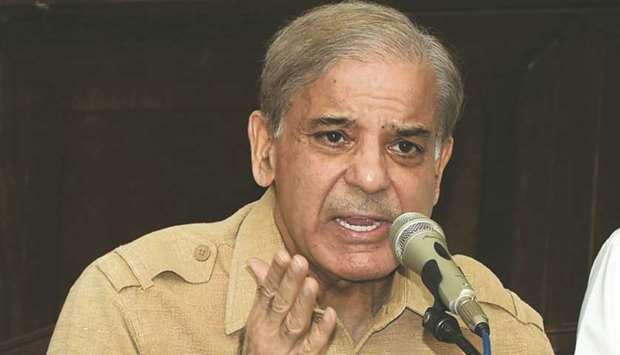A court in Pakistan has ordered the release of the country’s opposition leader, months after he was detained by the anti-graft agency along with several other members of his party.
Shehbaz Sharif, president of the Pakistan Muslim League – Nawaz (PML-N) party, has been in the custody of the National Accountability Bureau (NAB) since October.
Sharif, the younger brother of former prime minister Nawaz Sharif, was arrested on corruption allegations.
He was the chief minister of Pakistan’s largest province of Punjab until last summer and is currently leading the opposition in the national parliament.
His elder brother Nawaz is serving a seven-year jail term after his conviction on graft charges in December.
The Lahore High Court said that there is not enough evidence to keep younger Sharif in custody.
The NAB had arrested Shehbaz on October 5, 2018 in connection to the Ashiana Iqbal Housing Scheme case.
A two-judge bench headed by Justice Malik Shehzad Ahmad heard the bail petitions of Shehbaz and former principal secretary to then-prime minister Nawaz Sharif, Fawad Hasan Fawad.
The bench first reserved its decision but later ordered the release of the leader of the opposition in the National Assembly.
Further, the bench approved Fawad’s bail petition in the Ashiana Iqbal Housing Scheme case, but rejected it in the case pertaining to owing assets beyond known sources of income.
On January 22, Shehbaz filed a bail plea in the High Court, stating: “The National Accountability Bureau (NAB) made a case contrary to the law and arrested me. The case was made on political basis.”
“Whatever I did was in accordance with the law and Constitution. Not even an inch of official land was given to anyone and LHC (Lahore High Court) should accept my bail plea,” the petition had added.
Shehbaz had also mentioned medical reasons in his petition seeking bail.
The NAB had accused Shehbaz of misusing his powers while he was chief minister of Punjab in an inquiry pertaining to Punjab Land Development Company (PLDC).
The inquiry conducted so far reveals sufficient evidence to prove his involvement “in the commission of offences as defined under section 9(a) and Schedule of the National Accountability Bureau 1999”, a statement issued by the NAB following Shehbaz’s arrest had stated.
The inquiry conducted says that Shehbaz, as Punjab chief minister, had unlawfully assumed powers of the PLDC board of directors, misused his authority, and acted in connivance with Fawad, who at the time was secretary responsible for implementation to the Punjab chief minister.
Contracts awarded to M/s Ch. A Latif and sons for the development and infrastructure of Ashiana Iqbal Housing Project were illegally cancelled.
As the chief minister, Shehbaz in a meeting on October 21, 2014 directed the PLDC to entrust the project of Ashiana Iqbal Punjab to the Lahore Development Authority (LDA).
Shehbaz’s decision was illegal and mala fide as the PLDC was the company was established for undertaking such housing projects.
He is accused of illegally transferring this project to the LDA, which was headed by his close aide Ahad Khan Cheema.
Shehbaz is also accused of working in connivance with other accused in the case and directed the LDA to undertake the Ashiana Iqbal Project under Public Private Partnership mode.
The NAB states that this was done in order to give “unlawful benefit to blue-eyed firm namely M/s Bismillah Engineering Service Company, which was a proxy firm to M/s Paragon City”.

Leader of the Opposition Shehbaz Sharif.
